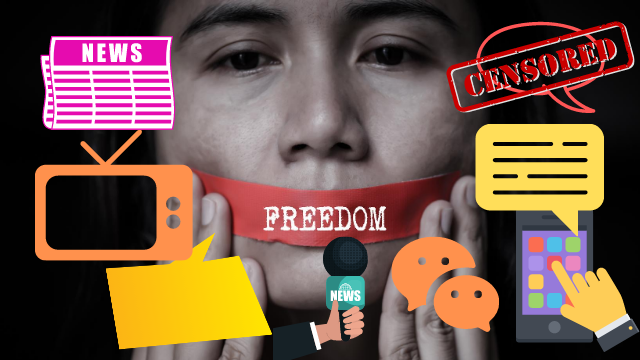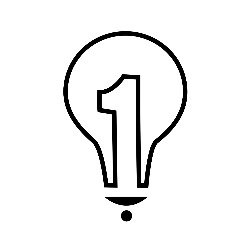This is a GP Media Essay question that we always teach in our tuition classes. Why? Because it has become very important to understand the restrictions on media, especially in an era where the media has become very politicised and democratised.
The original question is: Can restrictions on the mass media be justified when they are so difficult to enforce?
So, our First Class GP Team has crafted a GP Restrictions on Media Cheat Sheet for this question for all JC students who are looking to focus on Media questions.
Let’s dive into this GP Media Essay Cheat Sheet!
GP Media Essay Cheat Sheet: Can restrictions on the mass media be justified when they are so difficult to enforce?
Let’s first argue that restrictions are indeed justified, even if they are difficult to enforce.

Point 1: The role of the media is not always seen as one of a “watchdog” or a guardian of democracy.
Explanation: They view such an adversarial role by the press as a hindrance to other “priorities” such as stability, security, and nation building. The press is often viewed to be no more than a government mouthpiece that also carries advertisements
- In Singapore, the role of the main stream media is limited to informing and educating the public, advertisements for commercial and public purposes. The main-stream media (MSM) is also owned by the government, which is often viewed as a clear conflict-of-interest. MSM is not expected to, and is not known for, conducting investigative journalism that keeps the government transparent and accountable.
Point 2: The freedom of the press is being abused to propagate damaging falsehoods.
Explanation: Tabloid and “yellow” journalism has been around for decades. Such poor journalism has always been accused for being “light” or “economical” on the facts. It was wrong and distasteful in the past, and it remains so now. However, today it is difficult for some people to draw the distinction between what is real and what is not due to the ease of using photo and video editing software. And it is more damaging as these rumours and lies can literally spread faster than wildfire .
- The anti-vaccine movement has been gaining speed in the last decade, and there has been a rising increase in mumps, measles, and rubella outbreaks. These diseases are easily prevented by vaccines, but children are suffering because their parents believed these lies. If there were restrictions preventing the spread of these lies under the guise of media freedom, these outbreaks would have been prevented.
Point 3: The mass media has failed in its duty to educate the public.
Explanation: It has failed to challenge the dangerous claims made by individuals who seek high office. There is no excuse for the media to do such an ineffective job at fact checking. The media should be held accountable for sloppy journalism themselves.
- Donald Trump’s rhetoric should rightfully be called for it is; scaremongering lies and the politics of hate. But, major news outlets such as Fox appear to be heralding him. Other major broadcasters such as CNN and BBC have been ineffective at giving clarity and exposing the truth. These media outlets should be required to provide clarity, instead of just sensational headlines.
Point 4: Restrictions on the mass media are justified because new players in the field need to respect certain journalistic standards that were adopted through decades of tradition, even if all they are doing is informing the public.
Explanation: There are many laws and standards that have been adopted by the traditional media when it comes to intellectual property and journalistic integrity. Modern social media platforms may be new, but it is not an excuse to ignore standards.
- A Singaporean social media personality, Daryl Aiden Yow, was found to have edited himself into stock photos of foreign places, and making it look as though he had been there in person. These photos were posted on his social media platforms to give the impression that he had used a particular camera to the images as well. As such, he had deceived both the commercial company whose products he was promoting, as well as the many social media followers who thought it was real. This was essentially plagiarism.
Then, we shall argue that in fact, restrictions on the mass media are not justified when they are difficult to enforce.
Point 1: The freedom of the press is a fundamental principle that guarantees/protects all other freedoms.
Explanation: The press has an important role to play in ensuring individuals, organizations, and governments act with responsibility, transparency and accountability in the interest of the public. It is their job to call out illegality, corruption, significant conflicts of interest, uncover deception, and prove fraud. Regulating the freedom of the press is a slippery slope, which has a domino effect on other civil liberties.
- Reporters Without Borders is an organization that advocates for the freedom of the press and the protection of journalist who carry it this modern-day “sacred duty”. According to them, many countries outside North America and Europe restrict the freedom of the press. Many are also known to oppress journalists by means of harassment, intimidation, arrest, and sometimes even murder, just to discourage or prevent journalists from reporting.
Point 2: There should not be a barrier of entry to the “marketplace of ideas”.
Explanation: The concept of a “marketplace of ideas” supposes that given sufficient freedom and fair competition, the superior ideas would overcome inferior ideas. It is based on the assumption that people can tell truth from falsities, if they have the opportunity to hear the whole variety of different opinions. However this will fail, if the press is regulated and the supply of ideas is “one-sided” or becomes a “monopoly of only a few ideas”. A regulated press would result in the individual hearing fewer ideas or not learning the truth.
- In China – It was thought that the Internet could not be “controlled”, but the government of China has somewhat managed to enforce its “will” over how their people use the Internet through the introduction of their own social media platforms (WeChat, Weibo) and applications (Baidu, Alibaba).
- In North Korea – The people have practically no access to a free press. The leaders of the country (Kim Jong Un, Kim Jong Il, and Kim Il Soon) are idolized almost as though they were “gods”. Restricting the mass media is not easy today, but it has not stopped authoritarian regimes like North Korea and China. As a result their people are less informed. They may say such restrictions are necessary to block out pornography or terrorism related information, but it is more likely that it is being done to control their people.
If you enjoyed this GP Restrictions on Media Essay Cheat Sheet on restrictions on mass media, then feel free to take a look at our other Media Cheat Sheets, as well as our Instagram page (@firstclass.gp), where we post content, news, updates and announcements!
We know that reading and preparing for GP content is daunting. The good news is this. We have compiled useful headlines and summaries of important news over the years for 16 different topics. It is packed with over 1000 summaries articles! You will never have to waste time doing research again. Visit this link to download.


